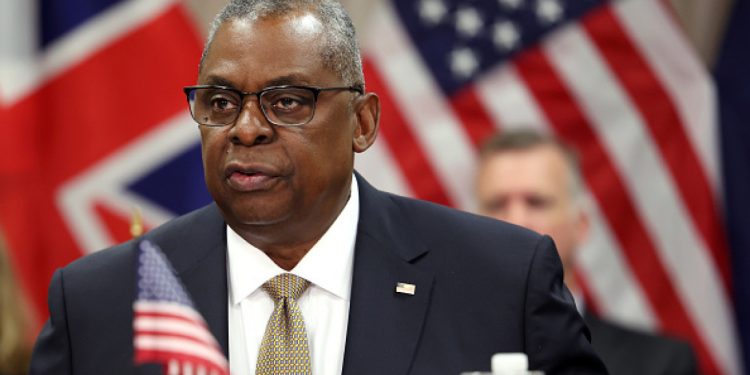During Thursday’s congressional testimony, Defense Secretary Lloyd Austin remarked that it’s not uncommon for him to go “days” without conversing with President Joe Biden. Rep. Jim Banks (R-IN) questioned Austin about the president’s three-day silence regarding Austin’s hospitalization, asking if such gaps were typical between them. Austin explained that such occurrences could happen, especially during travel periods for either party.
Banks pressed further, suggesting either presidential aloofness or Austin’s irrelevance as potential issues. Austin refuted both claims, asserting his active involvement in crucial decision-making processes alongside the president.
Watch the video:
During a congressional hearing addressing his delay in informing President Biden about his hospitalization, Austin admitted to the lapse after three days. Though he didn’t specify the frequency of such gaps in communication with Biden, recent reports from Breitbart News highlighted significant periods of Biden’s absence from the White House in 2022 and 2023.
House Armed Services Committee Chairman Mike Rogers (R-AL) expressed deep concern over the lack of notice from the White House regarding Austin’s absence, particularly amid ongoing conflicts in Ukraine, Israel, and Syria, where U.S. troops were under threat.
“Wars were raging in Ukraine and Israel. Our ships were under fire in the Red Sea. And our bases were bracing for attack in Syria and Iraq. But the commander in chief did not know that his Secretary of Defense was out of action,” Rogers remarked.
“Our forces conducted a preauthorized strike on Iranian-backed militia in Iraq during this period. Had something going wrong with the strike, or worse, if there was an attack on the United States, precious time would have been wasted while the President sought in vain to find his Secretary of Defense. The chain of command doesn’t work when the commander in chief doesn’t know who to call,” Rogers said.
“I find it very concerning that the secretary could be hospitalized for three days without anyone else in the administration even noticing. That suggests Secretary Austin’s advice is not sought or heeded in the White House even while military operations were ongoing in the Middle East,” he added.
“It also implies that the White House politicals, not seasoned defense professionals, are in the driver’s seat on matters of national security, which is very disturbing,” Rogers concluded.
 Telegram is where we really talk. Don't miss out!
Telegram is where we really talk. Don't miss out!








